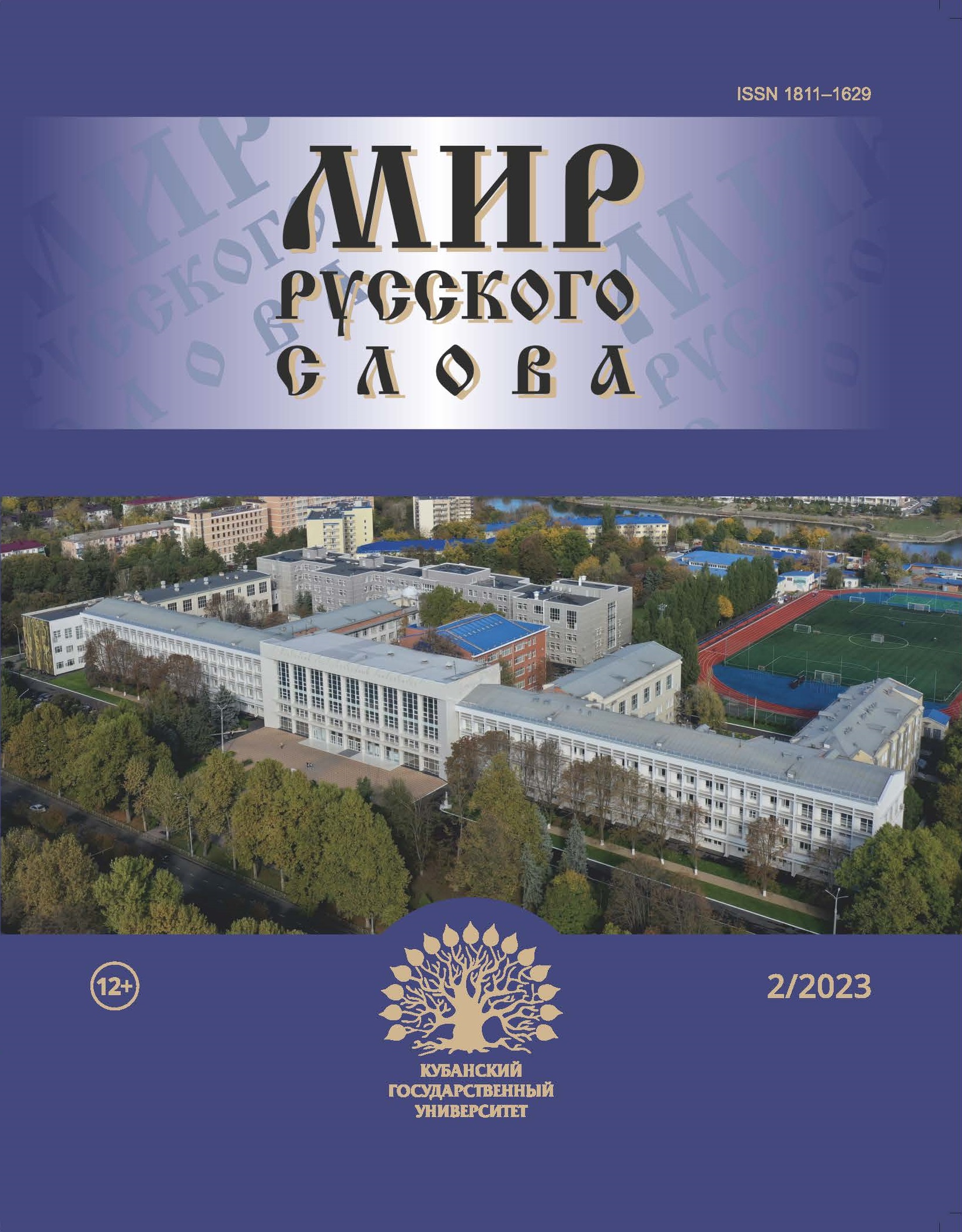Общеславянская лексика при обучении русскому языку в инославянской аудитории
DOI:
https://doi.org/10.21638/spbu30.2023.211Аннотация
В статье рассматривается лексический аспект обучения русскому языку носителей родственных славянских языков c учетом особенностей инославянской аудитории (необходимость преодоления межъязыковой интерференции и возможность использования положительного переноса, возникающих вследствие наличия общеславянского лексического фонда, связанных с ним процессов межъязыковой конвергенции и дивергенции). К общеславянскому лексическому фонду можно отнести слова, произошедшие от одного этимона, сходные по звучанию и написанию в родственных славянских языках. Различия семантической структуры подобных языковых единиц являются источником многочисленных лексических ошибок в речи студентов из славянских стран. Основная цель статьи — предложить новые подходы к предъявлению и семантизации общеславянской лексики на уроках русского языка как инославянского на продвинутом этапе обучения. Новизна исследования состоит в методической работе с языковыми единицами общеславянского лексического фонда, направленной на повышение эффективности процесса обучения русскому языку как инославянскому, на поиск способов презентации и семантизации лексических единиц с общеславянскими корнями, реализующих принципы сознательности обучения и учета родного языка. Материал исследования — языковые единицы праславянского лексического фонда, тексты с содержанием таких единиц. Методы исследования — анализ, синтез, педагогическое моделирование. Предложенные подходы активизируют процессы усвоения русской лексики в инославянской аудитории.
Ключевые слова:
русский как иностранный, обучение лексике, семантизация языковых единиц, инославянская аудитория, межъязыковые полисеманты
Скачивания
Библиографические ссылки
Загрузки
Опубликован
Как цитировать
Выпуск
Раздел
Лицензия
Статьи журнала «Мир русского слова» находятся в открытом доступе и распространяются в соответствии с условиями Лицензионного Договора с Санкт-Петербургским государственным университетом, который бесплатно предоставляет авторам неограниченное распространение и самостоятельное архивирование.




